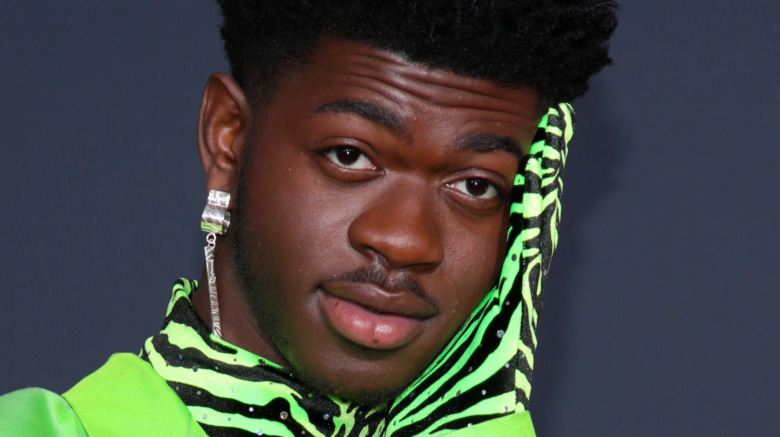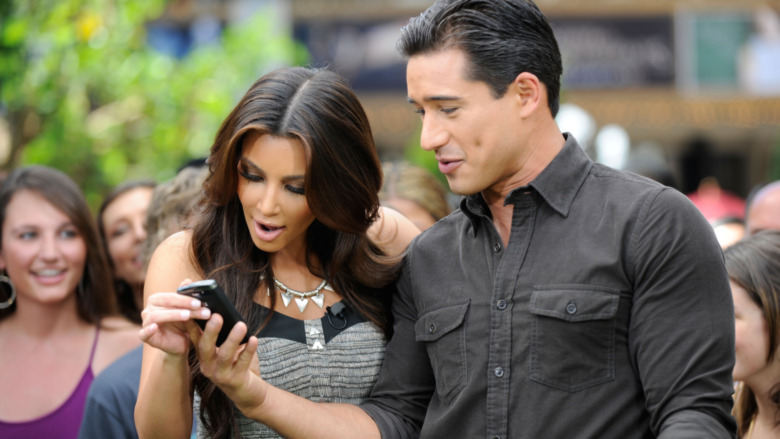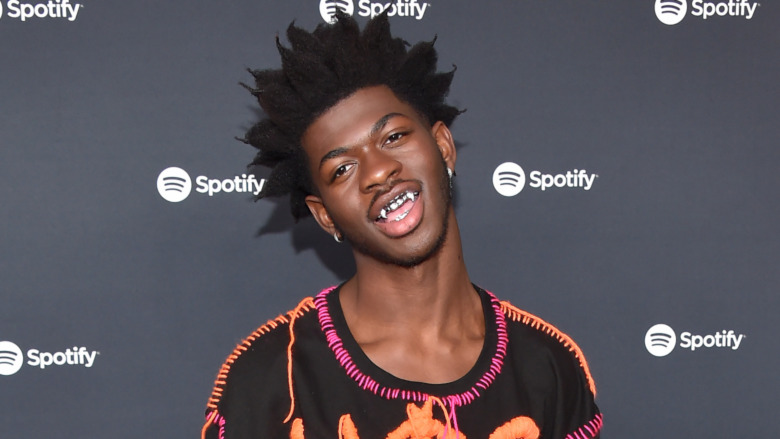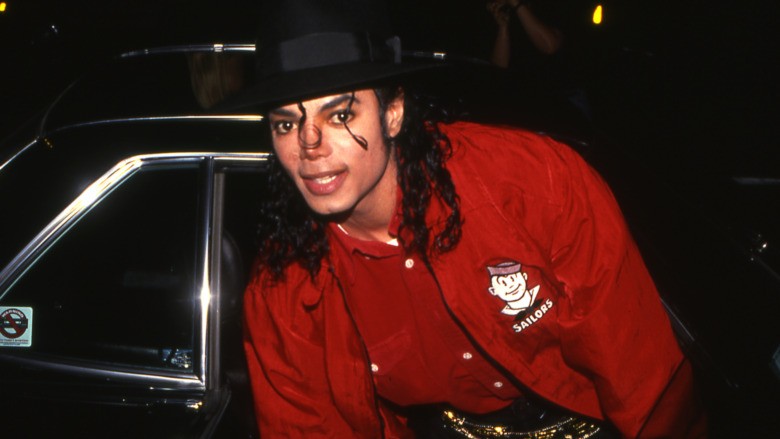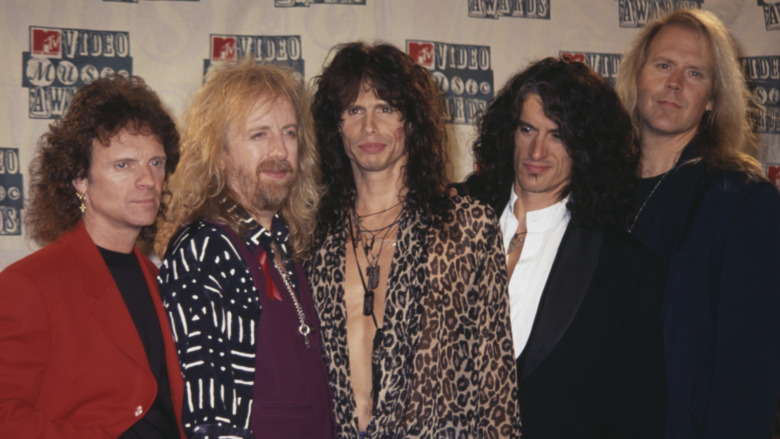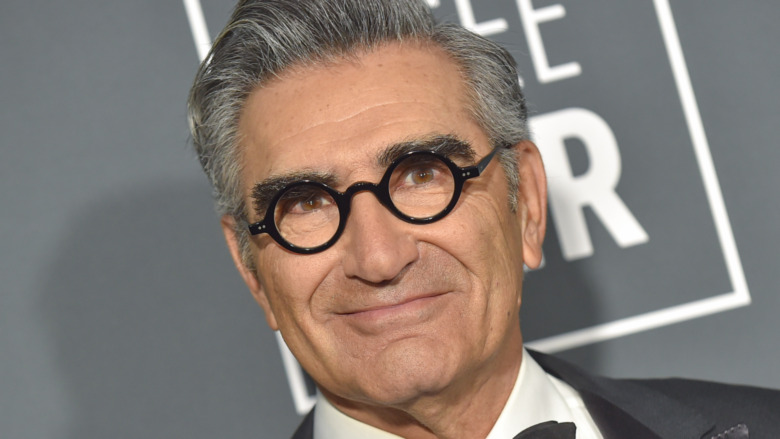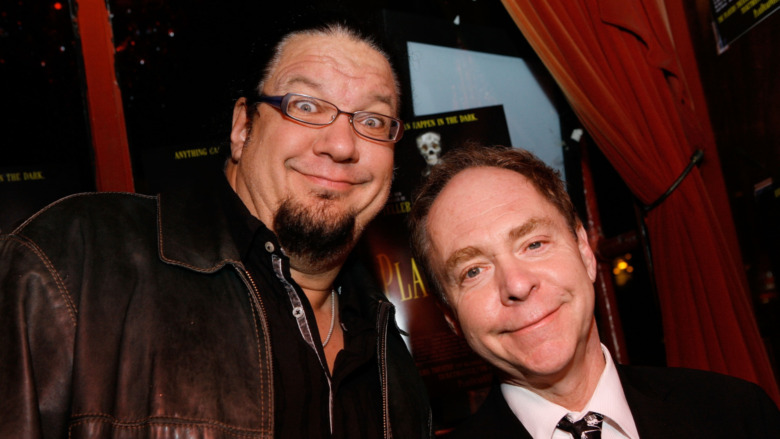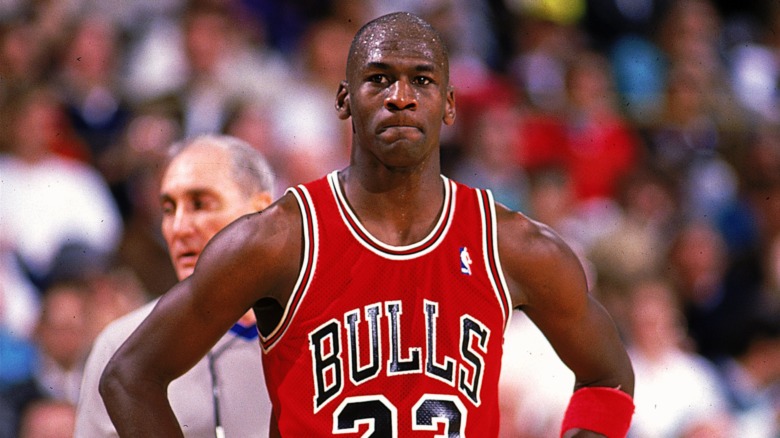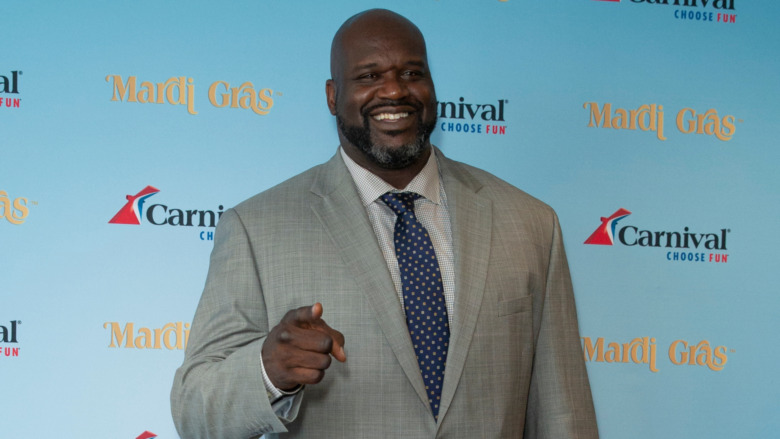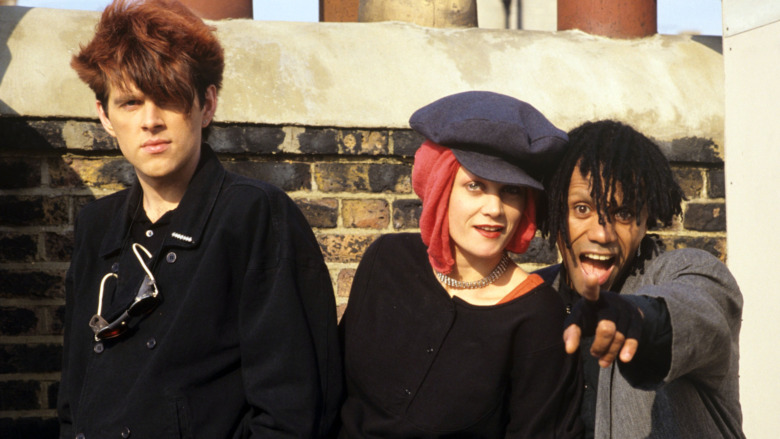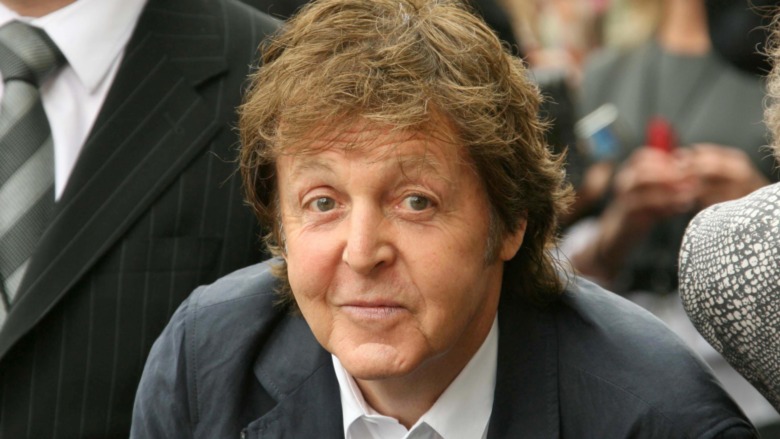The Weirdest Celebrity Video Games Ever Made
Regular people generally transform into famous people because they're exceptionally talented at one thing, and the general public will gladly pay for the privilege of experiencing those skills, be it acting, singing, playing an instrument, performing well at a sport, or just being naturally good-looking. However, it's rare that a celebrity famous for one discipline sticks to just that pursuit for the rest of their careers. Singers routinely give acting a try, actors record albums, athletes host talk shows, models launch fashion lines, etc. And that doesn't even scratch the surface of the seemingly endless number of bizarre celebrity endorsement deals.
But it's clear that the market supports it: Society loves famous people so much we will buy whatever they're selling: Even video games. There's a certain level of fame attained for either an instant or over a long period of time that enables a well-known icon to star in their own video game, their image plastered throughout the packaging and computer-rendered graphics. The games themselves? They're not always great. Here are some celebrities who got their own video games — strange video games.
Kim Kardashian: Hollywood was weird but profitable
With a personal brand and image carefully calculated and cultivated over years of episodes of Keeping Up with the Kardashians and various other media appearances, Kim Kardashian had built up a captive audience of around 23 million Instagram followers in 2014, according to People. With all those fans already spending so much time on their phones, Kardashian gave them sometime else to look at besides sponsored posts with the mobile game Kim Kardashian: Hollywood.
A humorous, self-deprecating and self-aware game, per Vulture, Kim Kardashian: Hollywood allows the player to try to make like a Kardashian and work their way up the showbiz food chain and become famous for doing little more than networking. Then they get to buy cool clothes, go on photo shoots, schmooze, club hop, and date. (Kardashian appears in this part of the game, trying to help set up the player with a friend.) Per the Wall Street Journal, Glu Mobile CEO Niccolo De Masi pitched the idea to Kardashian, who reviewed and "approved" most every element of the game, which, according to Inc., grossed $157 million for the company and star in just two years.
Make it twerk with Lil Nas X
According to CBS This Morning, budding rapper Lil Nas X spent just $50 to record "Old Town Road," an innovative country-rap-story song hybrid. Released independently on the internet, the song became a viral hit and then literally the biggest hit of all time — it spent a record 19 weeks at #1 on the Billboard Hot 100 and is the only single ever certified 14-times platinum by the Recording Industry Association of America. Lil Nas X released a few more singles and seemingly promised a full album could be along shortly. That LP, Montero (the rapper's real name is Montero Lamar Hill) was set for release in the summer of 2021, and Lil Nas X started promoting it hard in the spring, unveiling the lead single, "Montero (Call Me By Your Name)," which debuted at #1 on the pop chart.
Another element of the promotional rollout for this technology and internet-savvy performer: a free, in-browser game called Twerk Hero. Like predecessors Rock Band or Guitar Hero, Twerk Hero is a rhythmic game, requiring the player to tap the buttons in just the right order at just the right time to succeed. But rather than smashing buttons on a plastic guitar to play along with a song, Twerk Hero enables gamers to make a computerized version of Lil Nas X wildly shake his rear-end while "Montero" plays.
Michael Jackson's Moonwalker was less smooth, more criminal
In 1988, Michael Jackson released Moonwalker, a straight-to-VHS collection of short films and music videos from his most recent album, Bad. The centerpiece: a long-form, cinematic video for Jackson's single "Smooth Criminal." In what looks like a 1930s mobster movie, Jackson and three little kids run afoul of a criminal enterprise led by drug-dealing gangster don Frankie Lideo, aka Mr. Big (Joe Pesci). Because it's a Jackson video, it culminates in dancing, and the King of Pop and other dancers bust out their moves in an old-fashioned nightclub.
That segment of Moonwalker became the basis for the 1990 arcade game of the same name. The player guides Jackson, dressed in his white suit and hat from the "Smooth Criminal" video, as he wanders through Mr. Big's criminal lair, desperate to rescue the little kids the villain has kidnapped, according to Juicy Game Reviews. Jackson defeats all comers with special mystical powers, including "Dance Magic," which makes enemy combatants dance before they die, and inserting a special ability by grasping for Bubbles, Jackson's real-life pet chimpanzee. By touching the mystical primate, Jackson turns into a giant robot capable of "shoot[ing] lasers and missiles."
Save Aerosmith, save the world in this odd game
Released by Midway Games 1994, according to 1UP.com, Revolution X is set in the far-off, futuristic year of... 1996. The now-past future is not so bright, as a fascistic collective of governments and militaries called the New Order Nation regime has taken over the world. The group is run by Head Mistress Helga, who has banned all forms of youthful entertainment, including rock and roll, including the band Aerosmith, who weren't exactly spring chickens (shown above the year of the game's release). At the time Revolution X hit arcades, lead singer Steven Tyler was pushing 50, and the band, a major draw in the '70s, was in the midst of a comeback.
It's when the Revolution X player goes to see Aerosmith at the Los Angeles venue Club X that the band is kidnapped by NON forces. It's up to the player to rescue Steven Tyler, Joe Perry, and the rest by stealing a helicopter to travel to (and subsequently destroy) a series of NON fortresses located around the world, and then defeat Helga and her troops at Wembley Stadium in London.
And now, Eugene Levy as the voice of a golf ball
Before his Emmy-winning turn as the star and co-creator of the beloved Canadian sitcom Schitt's Creek, Eugene Levy was best known to younger audiences as Jim's goofy dad in the American Pie films, and to older audiences for his work on various SCTV-branded sketch comedy shows. Levy's is not a name most people associate with golf, but in 1993, Philips proudly touted the actor's involvement in a game for its high-end CD-i system, called The Wacky World of Miniature Golf with Eugene Levy.
A re-creation not of regular, 18-hole golf, but the casual, putt-putt style found at family fun centers, the player golfs as a generic character on a cartoonish course, negotiating silly obstacles like a running dog and an octopus, according to Giant Bomb. Levy's much-touted involvement in the game is limited to sarcastic commentary, delivered via a sassy talking golf ball.
The joke's on you with the Penn and Teller game
For decades, the duo of Penn and Teller have performed a magic show, but also an ironic, meta, gonzo send-up of a magic show, resulting in a darkly comic entertainment that is entirely its own thing. Penn and Teller have most commonly taken their schtick to the Las Vegas stage and on numerous TV shows, and in 1995, they expanded to video games.
Planned for the Sega CD system but never officially released, per Lost Levels, Penn & Teller's Smoke and Mirrors consisted of mini-games that, like the pair's live act, aimed to trick, fool, confuse, tease, and prank players and their friends. For example, one Smoke and Mirrors game, "Buzz Bombers" is a two-player, shooting contest that's rigged so Player 1 always wins, per Giant Bomb. And then there's "Desert Bus," which Penn Jillette described during a 2006 episode of his podcast (via GameSetWatch) as "the best part" of the whole collection. Inspired by Clinton administration attorney general Janet Reno's advocacy against violent video games, Penn and Teller made the least violent — and most boring — game possible. The player must drive a bus at 45 miles per hour, in real time, on the eight-hour trip from Tucson, Ariz. to Las Vegas. There are no obstacles, no traffic, and unchanging desert scenery. For making the trip, players received 1 point out of a possible 99,999.
David Beckham's weird soccer-adjacent adventure game
In the 1990s and 2000s, David Beckham was one of the most famous athletes, if not people in general, on the planet. He played soccer for the English national team and professionally at the storied Real Madrid franchise, but was so good and so charismatic that he was even famous in the United States, where soccer hasn't traditionally been as popular a spectator sport as football, basketball, or baseball. Beckham raked in millions in endorsement deals, and in 2002, he lent his image and persona to a video game, but it wasn't the obvious idea, like a soccer simulator with his handsome face slapped on the cover. Instead, a cartoon rendering of Beckham starred in Go! Go! Beckham! Adventure on Soccer Island.
Released exclusively for the Game Boy Advance, and only in Europe, according to IGN, Go! Go! Beckham! features the evil Mister Woe, who has forcibly seized the idyllic Soccer Island, and turned all of its friendly animals into monsters. The player controls Beckham, or rather a cute little cartoon guy by that name who looks nothing like his real-life inspiration, to defeat Mister Woe and his minions. He does that by using a soccer ball — the player kicks the ball at monsters, and then advances to each ascending level by kicking the ball into five locks.
Only Michael Jordan can save Chicago
Cited by many, including ESPN, as the greatest basketball player of all time, Michael Jordan transcended sports into celebrity and legend status, particularly in Chicago, where he led the Chicago Bulls to six NBA championships. There's even a statue of Jordan outside the Bulls' arena, and in 1994, he saved the city from fictional death and destruction from above in the Super Nintendo game Chaos in the Windy City. It's not a basketball game, but rather a game involving basketballs.
According to Tech Times, the game begins when evil scientist Maximus Cranium kidnaps a bunch of NBA all-stars just before a charity basketball game in Chicago. It's up to Jordan to wander around town and defeat Cranium's minions and monsters by throwing weaponized basketballs at them; some could instantly freeze, and others exploded. Once the bad guys were out of the way, Jordan then had to find keys and free those all-stars. (This game's premise is notably similar to the plot of the 1996 movie Space Jam, where Jordan has to rescue NBA all-stars who have been kidnapped by aliens, as opposed to a mad scientist.)
Beat up street fighters in this weird Shaquille O'Neal game
Shaquille O'Neal entered the NBA in 1993, and was immediately heralded as the premiere superstar of a new generation of basketball players. A 7'1", 325 pound center, he was one of the biggest and most bruising players to ever play pro basketball. A #1 draft pick, he also earned 1993 Rookie of the Year honors. O'Neal was telegenic, charismatic, and funny, and following in the tradition of heavily marketed NBA star Michael Jordan, "Shaq" became a brand, too. After releasing the platinum-selling rap album, Shaq Diesel, O'Neal lent his name, image, and reputation to Delphine Software and Electronic Arts' Shaq Fu, a brutal street combat game similar to Street Fighter or Mortal Kombat, which was controversially violent, but also very successful in the 1990s.
While the title is an imperfect, awkward play on "kung fu," a real martial art, there is no such thing as "Shaq Fu." And even in the game, according to Press the Buttons, players beat up each other with a style of fighting called "Shaqido" (while also wielding shuriken, or flying stars, called "Shaq-urikin"). Still, the game offered players Street Fighter or Mortal Kombat-type action, but with the opportunity to use a hulking figure who sort of looked like Shaquille O'Neal as a playable character.
The hardest part of the Thompson Twins' game was getting it onto a computer
Synth-pop and New Wave band the Thompson Twins enjoyed some success in the early 1980s with hits including "Lies," "Hold Me Now," "Lay Your Hands On Me," and "Doctor! Doctor!" The latter was the inspiration and basis for a video game that the Thompson Twins (above, actually a trio consisting of no one named Thompson) released in a very nontraditional way in 1984. The game's code was stored on a thin, plastic, 7" record that came free with the October 1984 issue of the magazine Computer and Video Games. Players then had to transfer that data to either their Commodore 64 or ZX Spectrum by making a cassette copy of the record, and then moving that to the computer via its cassette reader, as some computers at the time could read programs stored on tapes.
According to Giant Bomb, the game itself, The Thompson Twins Adventure, was a rudimentary early 1980s video game, with pixelated images of "The Twins" as they visit pixelated images of a beach, cave, road, forest, and village in order to find the ingredients to make a potion (whose purpose is never made clear). The game connects to "Doctor! Doctor!" In that there's a warning to consult a physician if the twins try to access an item they haven't yet collected, as they are "hallucinating."
Give your regards to Paul McCartney
As a member of the Beatles, Paul McCartney co-starred in a few well-received 1960s movies, playing a version of himself in A Hard Day's Night and Help! After the Fab Four split and McCartney went on to an extremely successful solo career, he gave films another try. In 1984, McCartney wrote, soundtracked, and starred in Give My Regards to Broad Street, a drama that depicts a fictionalized but stressful, listless, and aggravating day in the life of a rock star named Paul as he attempts to retrieve the stolen masters to a new album, films music videos, and hangs out with fellow ex-Beatle Ringo Starr.
Critics hated the movie, and it bombed at the box office, but in March 1985 — six months after the film came and went — Argus Press Software released a sequel to Give My Regards to Broad Street in the form of a home computer game of the same name. In the film, Paul successfully gets the master tapes back, but in the game, he discovers that there's still one missing, which just so happened to be the potential hit single. The player navigates a blocky figure who vaguely resembles McCartney around London (which seems to be composed primarily of empty streets, arranged like a race track) in order to reconnect with the session musicians who played on the song, and put the song back together.
Journey went to space and fought with fans
Bridging and embodying both the late '70s arena rock era and MTV explosion, Journey was one of the most popular bands on the planet by the early 1980s. The five-man San Francisco-based group, led by the otherworldly wailing of singer Steve Perry on anthems including "Lights," "Don't Stop Believin'," and "Wheel in the Sky" sold millions of albums, and video game manufacturer Bally Midway figured at least some of Journey's many fans would pump quarters into an arcade game featuring the band.
According to Arcade Museum, Journey hit arcades in 1983. The game begins with all five members of Journey boarding a "scarab vehicle," or a giant mechanical beetle, which then zooms into a gigantic blue helmet before heading to a planet of the player's choice, each of which stars a different Journey musician, represented by a tiny, black-and-white, photograph of their face (very high tech for the time) trying to collect their respective instrument (guitar, drums, keyboard, etc.) while dealing with obstacles and bad guys. Once the player has guided all of Journey to their instruments, the band plays a concert and the player then controls "Herbie," the band's roadie, who attempts to keep groupies, or "groupoids" from attacking Steve Perry (above right), Neal Schon (above left), Jonathan Cain, Ross Valory, and Steve Smith.

